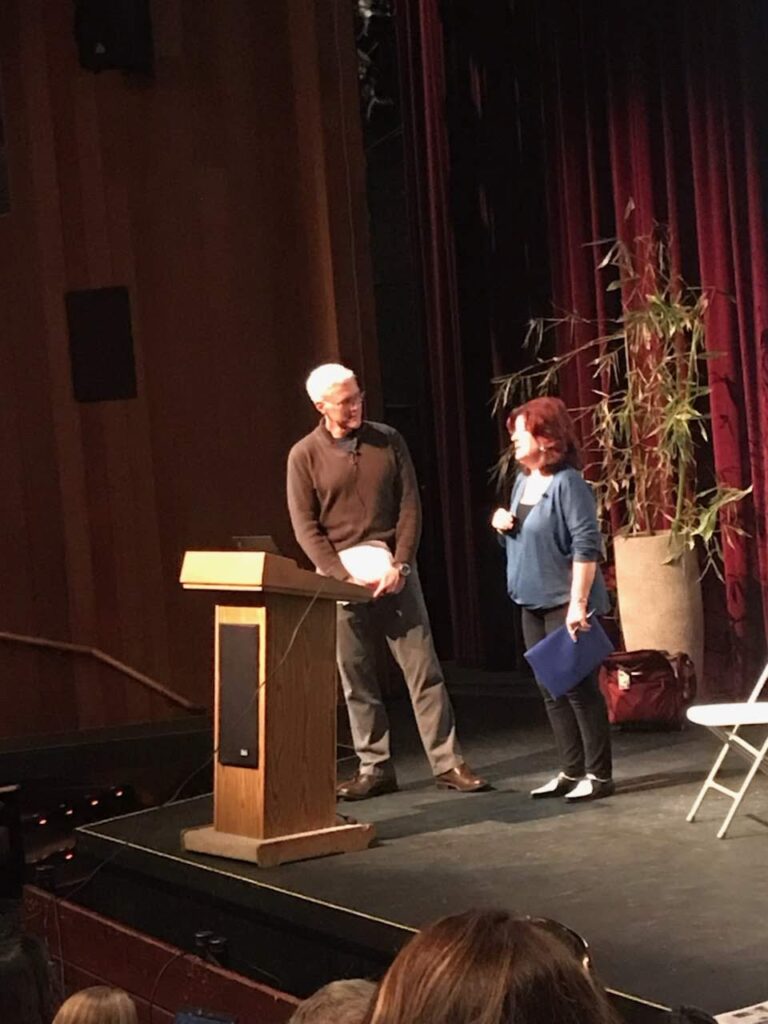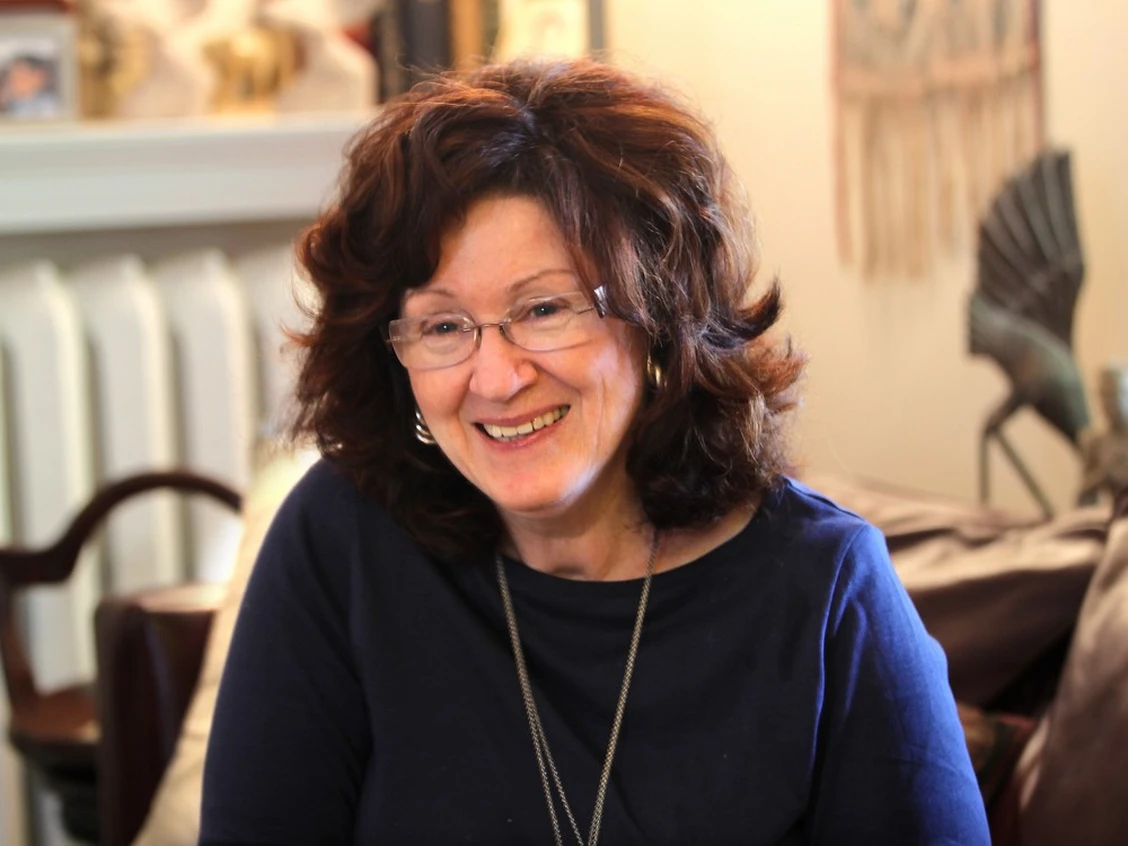Posts Tagged ‘EFT’
Questions To Ask a Therapist Before You Start
How to Choose a Couples Therapist
Choosing a couples therapist is an important step toward strengthening your relationship — but how do you know which therapist is right for you and your partner? You may have searched for terms like “best relationship counseling near me” or “how to choose a couples therapist,” and now you’re looking at a list of options. How do you make an informed choice?
Starting couples therapy is a significant investment in your relationship. You want a therapist whose expertise aligns with your needs — someone who understands the challenges you’re facing and can guide you effectively.
A good couples therapist will typically offer a brief consultation so you can assess their approach and determine if they’re the right fit. To help you through this process, I’ve provided a list of key questions to ask when evaluating a potential therapist — along with guidance on what to listen for in their responses.
These questions fall into 3 essential categories:
- A therapist’s qualifications – Their training, experience, and credentials.
- Their perspective on relationship distress and wellness – How they understand and approach relationship challenges.
- Their therapeutic process – What working with them will look like, session to session.
Is a potential new couple therapist to find out if they’re right for you? Below is a guide to help you determine this and find the right relationship counseling near you. I’ve broken it into sections to make it easier to track.
Ask a Potential Therapist These Questions
Couple Therapist Qualifications
Experience and Professional Engagement
“Approximately what percentage of your practice over the last two years has been dedicated to working with couples?” And, “do you have a regular consultation process wherein you discuss your work?” These questions aim to assess the therapist’s dedication to couples therapy. A therapist applying techniques learned for individual therapy to the complexities of a couple’s dynamics can fall far short of what a relationship needs.
Specialized Couple Therapy Training and Qualifications
“What specific training in couples therapy have you undertaken?” Exploring their specialized training provides insight into their qualifications and dedication, facilitating the process of finding the right therapist for you. Prospective therapists should be able to describe application of a method of therapy relative to their training. An EFT Couple Therapist can describe their process in a detailed fashion.
“Do you have specific training regarding difficulties related to sexuality?” This is an important question for couples struggling with problems relating to sexuality to ask.
Feedback and Evaluation Process
“How do you provide feedback and evaluate progress in therapy?” This question allows couples to understand how the therapist assesses progress and navigates therapeutic milestones. A transparent feedback mechanism is vital for ensuring that therapy remains aligned with the couple’s goals and for making necessary adjustments to the therapeutic approach.
Couple Therapist’s Theoretical Orientation
Therapist’s Theoretical Orientation
“What theoretical perspective guides your work with couples?” It is essential that the therapist operates from a solid theoretical foundation, such as Attachment Theory, which is at the heart of Emotionally Focused Couple Therapy (EFT). The approach a therapist takes should be grounded in solid theory. Also, there should be a structured methodology to effectively address relationship distress.
Does the Therapist Understand When NOT to Do Couple Counseling?
“What are the Contraindications to Couple Therapy?” A prospective therapist should be clear about this. They should describe when the type of couple’s therapy they do might not be the best choice or should be approached with caution. Common contraindications follow: Severe mental illness and substance use disorders that interfere with participation. Misaligned agendas for therapy. Ongoing affairs that threaten a partner’s sense of security. Also, a risk of violence that prohibits vulnerability. In some cases, addressing the contraindicating issue (such as through individual therapy, addiction treatment, or safety planning) can make couple therapy like EFT a viable option later on.
Therapist’s Focus: Emotional Connection or Behavioral Contracts?
“How important is the emotional bond versus behavioral contracts in your approach to couple dynamics?” Herein, a therapist who emphasizes strengthening the emotional connection addresses the core issues of relationship distress effectively. The late Dr. Sue Johnson’s insight, “it’s about the bond, not a bargain,” poignantly captures the essence of couple therapy.
Perspective on Enhancing Communication Skills
“How do you work to enhance communication skills in your therapy sessions?” Ideally, the therapist’s approach should highlight the importance of fostering trust that your partner is available, responsive and emotionally engaged. By contrast, a focus on mere communication techniques can interfere with the depth of understanding in the relationship. “I statements” and similar “communication tips” don’t come online readily when intense emotion gets stirred. This is a very important distinction in finding the right therapist for you.
Couple Therapist’s Process
Expectations for Therapy Duration and Frequency
“What are your expectations for the duration and frequency of therapy sessions?” This question helps set realistic expectations for the therapy process. For example, you want to understand how long it might take to see improvements and how often sessions will occur. Therapy is a significant investment. It’s crucial for planning and commitment to the therapeutic journey that you know what to expect.
Strategies for Enhancing Connection Outside Therapy
“What strategies do you recommend for couples to enhance their connection outside of therapy sessions?” A therapist who offers practical tools, exercises and resources for couples to work on between sessions demonstrates a proactive approach to therapy. This can help accelerate progress by encouraging partners to actively engage outside the therapeutic setting.
Approach to Individual Sessions
“Do you conduct individual sessions with partners?” Generally, therapy should involve both partners, with individual sessions reserved for specific assessment purposes. This approach reflects the therapist’s commitment to treating the relationship as the central client. Further, you probably don’t have the right therapist for you if they don’t have a clear policy about how to treat informations shared during individual sessions!
Ensuring Impartiality
“How do you maintain impartiality in your sessions?” Asking this question probes the therapist’s strategy for navigating complex couple dynamics. Thereby, ensuring they view the relationship as an interconnected system. I think it’s so important to feel confident about a prospective therapist’s answer to this question. This is because the experience of therapist bias toward one partner is a primary reason clients cite for therapy “failing.”
How to Find the Best Couples Therapy Near You
If you’re looking for couples therapy in Reno, NV (or in your local area), here are a few tips to help you find the best therapist for your needs:
- Search using phrases like “how to choose a couples therapist,” “relationship counseling near me,” or “couples therapy Reno NV.”
- Look for therapists who specialize in relationship work and have advanced training — such as Emotionally Focused Therapy (EFT) or the Gottman Method.
- Prioritize therapists whose practice is focused on couples counseling — not general individual therapy.
- Ask for a brief consultation — this helps you assess their approach and whether it feels like a good fit.
- Consider practices like Individual & Relationship Counseling Associates in Reno where couples therapy is a core specialty.
How to Choose a Couples Therapist: Summary
Selecting the right couples therapist is a thoughtful process — and asking the right questions can help you choose a professional who aligns with your relationship goals. The questions provided here will give you insight into a therapist’s philosophy, methods, and approach, helping you determine if they’re the right fit for your needs.
While a basic search such as “relationship counseling near me” is a good starting point, refining your options is essential. Look for a compassionate, well-trained therapist who provides a clear process, focuses on emotional connection, and can effectively guide you and your partner toward a stronger relationship.
If you’d like to learn more about our approach to couples therapy, visit our Couples Counseling in Reno page or contact us for a confidential consultation.

A Discussion of Family Therapy for Military Families
What to Expect from the Episode
Dr. Polinsky explains the profound impact of caregiver accessibility on children, shedding light on how feelings of emotional disconnection can influence behaviors, life choices, and even risks like substance use. She and Con delve into the complexities of military family life, discussing challenges such as navigating parental roles during deployment and coping with the stressors unique to military culture.
Key Insights from Con Sheehan
Con shares real-life examples from his EFFT practice, emphasizing the importance of creating a secure family environment where every member’s emotional needs are acknowledged and met. He highlights actionable strategies such as:
- How availability and intentional parenting can counteract the effects of stress and disconnection.
- The role of repair in strengthening family bonds.
- The benefits of even short-term therapy in helping military families thrive.
Therapy for military families in Reno, NV with Con Sheehan, LCSW. Con does attachment-based EFFT, Emotionally Focused Family Therapy in Reno. He was recently a guest on the Communicate and Connect Podcast.
Ep. 50 with Con Sheehan on Emotionally Focused Family Therapy
In The Communicate and Connect Podcast for Military Relationships, marriage counselor Dr. Elizabeth Polinsky explains relationship science and discusses educational tips for improving your relationship and navigating military family life.
From Dr. Polinsky: “In this podcast you’ll find insights into how children cope with feelings of caregiver inaccessibility and how this can influence their behavior and life choices, including the risks of substance use. We also discuss specific challenges faced by military families, such as managing parental roles during deployment and the unique stresses that can impact both children and parents.
To aid our understanding, Con shares examples from his practice, focusing on creating a family environment where each member’s needs are understood and met. We’ll emphasize the importance of repair, availability, and intentional parenting—even discussing how therapy, even short-term, can be instrumental for families.”
Click here to learn more about family therapy in Reno with Cornelius and his colleagues at Individual & Relationship Counseling Associates.
Therapist Dr. Sue Johnson (1947-2024) revolutionized relationship counseling
Remembering Dr. Sue Johnson
If you’ve heard me describe the work I do or have been a student, you’ve heard me talk about therapist, Dr. Sue Johnson. I felt (continue to feel) an enormous loss with her passing, April 23rd. No individual was more important to the development of relationship therapy than her. Sue Johnson’s therapy innovations changed everything. Her work and writing were grounded in seeing people’s good intent and using emotional experience to bring it back online, no matter how deeply it was buried. Sue saw the good, AND at the same time did not tolerate bad-faith engagement. She was soft, slow and warm therapist, Dr. Sue Johnson in the video demonstrations of her work, but another Sue emerged when good-faith left the discussion. I loved these things about her!

I found my professional home with her.
My work was becoming centered in attachment theory when I met Sue in the clinical research and then in a book called, “The Practice of Emotionally Focused Therapy; Creating Connection,” in 2000. A few years later I met her very briefly in person at the Evolution of Psychotherapy conference in Anaheim, CA. I remember my sense of her being on this little island where emotion was prized, in a huge sea of cognitive-behavioral waters. Sue made so much sense! I was working frequently with court-mandated clients and “changing thinking” was NOT an effective mechanism for change, but it was the prescribed one. Focusing on emotional experience through an attachment lens proved to be the key to true change. Fortunately, years later, I found a formal path to learning EFT. My clinical work went to a place it never would have without Dr. Sue Johnson. A week doesn’t go by without me feeling deep gratitude for Sue and Emotionally Focused Therapy. Thanks to Sue, I could profoundly impact my clients’ lives in ways I never imagined when starting my career.
In this same professional home I met colleagues from around the world, some of whom are now amongst the most dear and important people in my life. They are family. I’m glad Sue knew how grateful we were for the connections she fostered – connections evident at EFT summits, trainings, and online.
Sue Johnson embodied what she taught.
I wasn’t a close, personal friend of Sue. But I did spend some time with her and did correspond with her periodically- and this always felt close and personal. You could feel her attentiveness and focus in a way that I can only describe as “honoring”. Sue engaged in this way, and I think this way of attending was a big part of what she helped therapist students find in their work. I’ll treasure my correspondence with her. Also, the opportunity I had to do a live case consultation with her. And of course, my role in continuing to grow a community of EFT therapists in the Reno/Tahoe area. Our local community is recognized by the International Center for Excellence in Emotionally Focused Therapy, the learning institute Sue and colleagues founded. You can disover more about learning EFT in Reno, here.
My heart goes out to the Sue’s family, the people closest to her and other colleagues experiencing her loss. Sue’s work will not only live on, but will continue to be expanded upon and proliferate. Here is a link to an article in the Ottawa Citizen where you can learn more about Sue and her work.
Cover photo of Dr. Sue Johnson (PHOTO BY BRUNO SCHLUMBERGER /Postmedia)
“Cooling the Flames: De-escalating Arguments in Love”
Strategies for Handling Arguments in Relationship
Introduction
As an experienced, certified Emotionally Focused Therapist (EFT) couple therapist, I’ve spent years helping couples navigate the complex tides of their relationships. I’ve realized that one of the most common challenges couples face is handling relationship conflict, i.e. managing and de-escalating the arguments we all experience. In what follows, I want to share with you some insights and strategies from my clinical world that can help turn heated arguments into opportunities for deeper connection and understanding.
Understanding Conflict Through an EFT Lens
The EFT Perspective on Relationship Conflicts
In Emotionally Focused Therapy, we see conflicts not just as clashes of words or wills, but as expressions of deeper emotional needs and fears. Often, what starts as a minor disagreement can quickly escalate into a full-blown argument when underlying attachment needs are not met.
I recall a couple, let’s call them Gretchen and Walt, who came to me struggling with frequent, intense arguments in areas ranging from finance and parenting to which grandparents’ house they would visit first over the holidays. Through EFT, they learned that their conflicts weren’t really about the chores or the finances; they were about seeking emotional safety and connection. Gretchen and Walt each wanted to know they were taken in by one another.
Emotional Awareness and Regulation
The first step in de-escalating arguments is understanding and regulating your own emotions. It’s about recognizing the signs of emotional escalation within yourself. This awareness creates a pause, allowing you to choose a more constructive response.
For instance, when Gretchen felt unheard, she learned to express her feelings without blaming Walt, saying things like, “I feel worried and a bit afraid when we don’t talk about our finances.” This shift in communication made a huge difference.
Communicating Effectively in the Heat of the Moment
Communication Techniques for De-escalation
Effective communication during an argument is key. In EFT, we focus on expressing underlying emotions and needs without attacking the other person.
A technique colleagues and I often recommend is the ‘softened start-up’. Instead of beginning a conversation with criticism or contempt, start with a statement that opens the door for understanding. For example, “I feel stressed about our schedule and need to talk about it,” is more likely to elicit a positive response than, “You never make time for us.” Granted, this can be hard to do when you lack confidence (haven’t had the experience) that your partner will be receptive to your softened message. A well-trained EFT therapist will help you understand and overcome this block to softened messages.
Step-by-Step Guide to De-escalating an Argument
Here’s a simple guide to follow when you feel an argument escalating:
- Pause and Breathe: Take a moment to breathe and step back from the heat of the moment.
- Reflect on Your Feelings: Ask yourself what you’re really feeling and why.
- Communicate Your Emotional Needs: Share these feelings with your partner in a non-confrontational way.
Creating the Right Environment for Healthy Conflicts
Timing and Environment Considerations
The setting in which you address conflicts is crucial. Avoid starting difficult conversations when either of you is tired, stressed, or distracted. Choose a time and place where you both feel comfortable and are less likely to be interrupted.
Foundations for Resilient Relationships
Building Healthy Conflict Resolution Foundations
To build a relationship that withstands the storms of conflict, regular emotional check-ins are vital. These create a space for discussing feelings and needs outside of heated arguments. Understanding each other’s conflict styles and attachment needs is also crucial.
In my practice, I’ve seen couples transform their relationships by simply dedicating time each week to discuss their feelings and needs calmly and openly.
When to Seek Professional Help
When to Seek EFT Counseling
Recognizing when you need professional help is a sign of strength, not weakness. If arguments are becoming frequent and more intense, or if you find yourselves stuck in the same patterns, it might be time to seek EFT counseling. This can provide a safe space to explore deeper emotional issues and learn effective strategies for managing conflicts.
The Journey of Change
Sustaining Change with EFT Principles
Implementing these strategies is a journey, not a one-time event. It requires patience, practice, and a willingness to be vulnerable. Celebrate your progress, no matter how small, and be patient with setbacks.
Conclusion
In conclusion, remember that every argument presents an opportunity for growth and deeper connection. By applying these strategies, you can turn conflicts into catalysts for strengthening your bond.
Keep in mind that love is not just about agreeing on everything; it’s about navigating disagreements in a way that enriches your relationship. Handling arguments in relationship is a path to deeper connection.
If my colleagues and I can help you on the path of connection that grows and flourishes, reach out to us for a free consultation. 775-235-2205
Additional Resources and Support
For those interested in exploring more about Emotionally Focused Therapy and relationship enhancement, there are numerous resources available. Books such as “Hold Me Tight” by Dr. Sue Johnson, and websites like the International Centre for Excellence in Emotionally Focused Therapy (ICEEFT) offer valuable insights. Additionally, I’ll be hosting a series of workshops and webinars in the coming months, focusing on deepening emotional connections in relationships.
Building Resilient Bonds: How EFT Strengthens Community Connections
Building stronger communities is crucial, especially now as we face a widespread loneliness epidemic. The path to greater connectedness is clear. Based on attachment theory, EFT recognizes our inherent need for deep social bonds and strong emotional connections, fundamental to robust communities. By focusing on emotional dynamics, EFT helps forge secure, resilient relationships, aiding in resolving conflicts and emotional pain. It enhances emotional control and thinking adaptability, enabling calmer responses to new experiences. At its core, attachment theory and EFT teach us that embracing each other, rather than avoiding or opposing, is key to overcoming distress.
On the macro level, the promise of Emotionally Focused Therapy can be understood from several angles:
- Cultural Impact: Firstly, recognizing the importance of emotional intelligence and secure attachment can shift cultural narratives. This, in turn, impacts entertainment, education, and policy, pushing societies towards valuing emotional health and strong bonds.
- Model for Healthy Communication: Additionally, EFT provides tools for validating feelings, empathetic listening, and open communication. When applied widely, these can foster understanding and minimize conflicts, benefiting both personal relationships and larger contexts like communities and workplaces.
- Strengthening Relationships: At its core, EFT believes that strong attachments promote well-being in individuals and relationships. By mending attachment wounds and nurturing closer bonds, EFT subsequently bolsters family and community stability.
- Reducing Divorce and Separation Rates: Furthermore, EFT’s effectiveness in addressing relationship issues suggests its broader use could decrease divorce and separation rates, ensuring stable homes for children.
- Mental Health Improvement: On another note, EFT can diminish symptoms of anxiety, depression, and related disorders. Broadly speaking, this means a healthier public, fewer healthcare expenses, and heightened work efficiency.
- Education and Prevention: By integrating EFT principles in education or health campaigns, there’s an opportunity to proactively fortify relationships, mitigate relationship strain, and amplify societal grasp of emotional health.
- Economic Impacts: On the economic front, enhanced mental health, declining divorce rates, and improved work relationships spur economic gains. Content and emotionally stable individuals are often more industrious, potentially elevating economic performance.
- Research and Development: Lastly, EFT’s success and strong research base could fuel further studies in psychotherapy and relationship dynamics, ushering in advanced therapies and strategies for people and couples.





